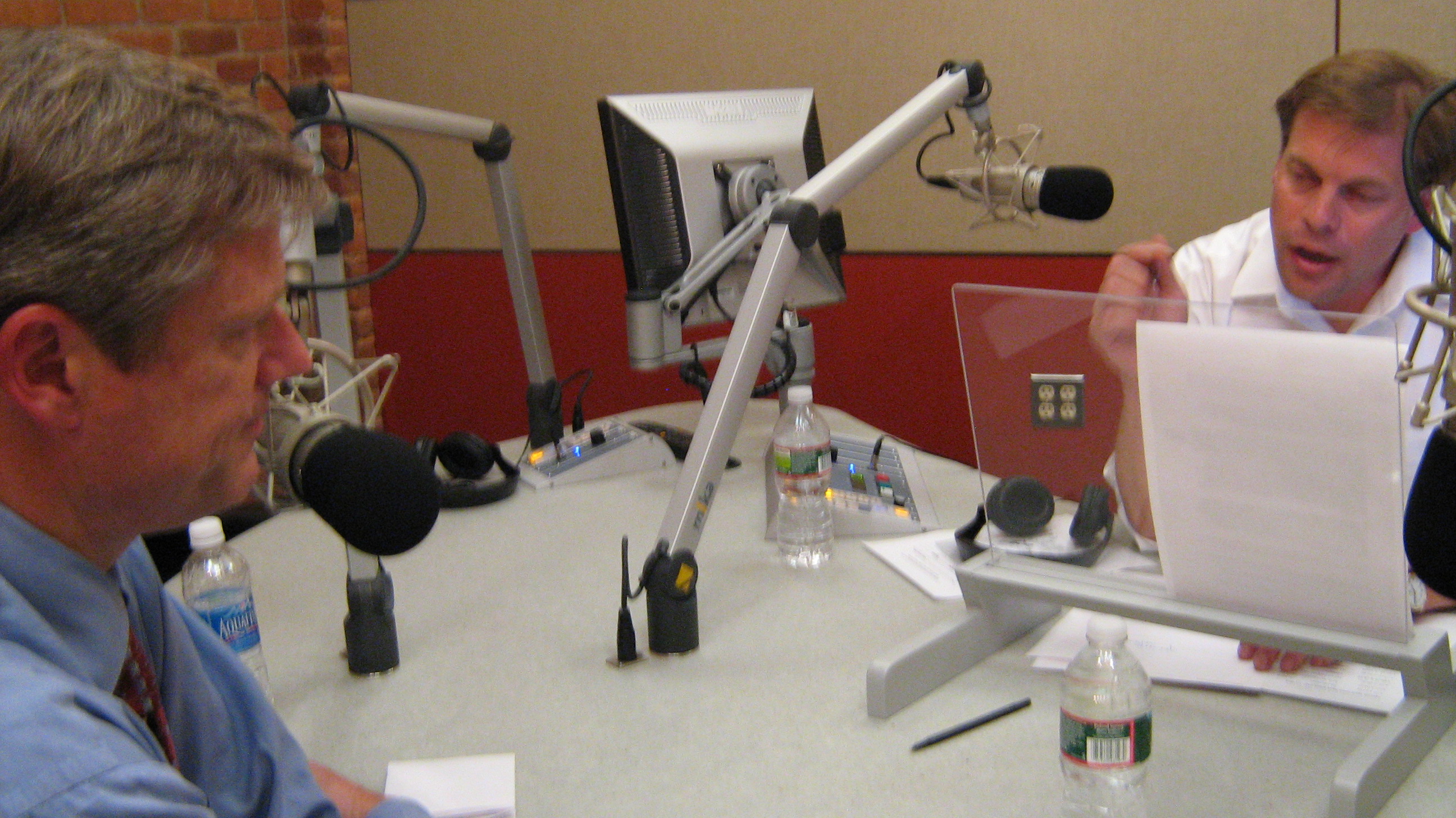 |
| Offical Baker Campaign Portrait |
For our second edition of the Governor Giveth and the Governor Taketh Away, we take a look at Charlie Baker. Baker, an official in the administrations of Republican governors and CEO at Harvard Pilgrim Health Care, is the Republican nominee for governor this November. He avoided a costly primary fight with seemingly perennial candidate and former board member of the now defunct Mass Turnpike Authority, Christy Mihos. Mihos failed the garner enough support at the GOP state convention in Worcester to make it on the September ballot.
As such, Baker has had the benefit of going right into the gubernatorial battle from the beginning, campaigning against Governor Deval Patrick and Democrat turned Tea Party-esque Independent, Treasurer Tim Cahill. For the most part, the debate has been framed around fiscal conservatism, taxes, and government corruption. While other issues like business competitiveness, health care, and education are at the top of the list, government and how it taxes and spends has been a huge part of the conversation.
Baker's platform on government, taxes, and competitiveness go hand in hand. In Baker's mind, not surprisingly for a Republican, cutting taxes would improve the state's economic position by attracting business. While that argument on its face is dubious (Massachusetts has weathered the recession better than most states despite it hiking taxes), he does have the right idea about taxes in general. There is little wisdom in raising taxes broadly in the midst of a recession especially as all it does is continue wasteful spending on the part of the legislature.
Baker does favor returning the state's sales tax to 5%, however it is only one of many such taxes cuts he supports. While all of his tax cuts receive equal billing on his website, news reports and the candidate himself indicate that the tax on income is his most pressing concern. Specifically, Baker would seek a reduction of the state income tax to a flat 5% from the present 5.3%. While Baker has a point that the voters passed in a binding referendum that very reduction five years ago, like Romney and others before him, harping on this issue has gotten a little old.
 |
| State House in 2008 (WMassP&I) |
The reduction appeared before voters some ten years ago and was scheduled to go into effect shortly before the recession of 2001-2. The referendum was not wholly ignored by the legislature as the income tax prior to the referendum was 5.85%, which remains an "optional" income tax on Mass tax forms (The current rate did not, however, go into effect fully until 2004). While the legislature may have been obligated to reduce the income tax after the economy fully recovered mid-decade, there remains the problems with voter referenda on tax issues. Back to that in a minute.
 |
| New Hampshire Quarter (Wikipedia) |
Baker may have an excellent philosophical point where the income tax is concerned, but his focus on the income tax has come at the expense of the more troublesome recent tax increase--the sales tax. Certainly the additional 0.3% on incomes gave the legislature license to spend somewhat recklessly this past decade, the sales tax increase could not have come a worse time. With consumption down due to the recession and the tax free Granite State only a half our from the Boston area, this increase (and its sibling the inclusion of alcohol on the list of taxable items at point of sale) proves damaging to merchants and self-defeating.
Despite this fact, Baker, while talking to WFCR Thursday and taking calls from listeners, noted the sales tax increase, but clearly made the income tax his priority. One call from Matt, a recent UMASS graduate planning to move to Boston seemed to agree with him while discussing the income tax. While the caller expressed a concern about entering the workforce and confronting the expense of Boston living (which as your webmaster can tell you is not easy or cheap), the reduction in income would amount to very little. Based on the average household income in Massachusetts for 2008, a reduction in the income tax would translate into less than $200 a year. For Matt, not knowing his income or rent (a portion of which can be deducted from Mass income tax), it will probably end up being much less than $200.
 |
| Baker on Sept. 9, 2010 (WFCR) |
Mike's point about the sales taxes (and their increases) refers to how the poor end up paying a larger percentage of their income on the tax than the wealthy usually do. However, if that does not make Baker think twice about his tax policies, then perhaps this will. According the state's own revenue analysis for fiscal year 2010, which ended in June, the state collected roughly $589 million more in income tax because the rate was set at 5.3% instead of only 5. However, the sales tax increase alone accounted for $759 million. In other words, in absolute terms, the sales tax increase has extracted a greater amount of income from taxpayers than that extra three tenths of percent in the income tax. This is separate from the $79 million gleaned from ending the exemption on alcohol. Taken together these modifications to the sales tax have cost taxpayers 25% more than the extra 0.3% in income tax.
Perhaps what is equally troubling about Baker's focus on the income tax to the detriment of the sales tax is how that flies in the face of Baker's pro-business agenda. The higher income tax only affects businesses to the extent that the owners of the businesses have a higher tax liability on their personal income tax. However, the sales tax directly affects businesses' bottom line. The added 1.25% (or more for meals in some localities) to the sales tax is subject to the fees charged by credit card companies to process charged transactions. The sum of those higher fees is added to businesses' expenses. While it could be deducted from taxes, it only exempts those dollars from taxation it does not change the fact that the business does not have that money anymore. In other words, the sales tax translates into additional raw expenses to businesses. Those three tenths of a percent on income do not. If Baker is really serious about improving the business climate he should rethink about his priorities.
Baker has a point when he, like many before him, notes that the legislature abrogates the will of the people when it essentially holds back a voter approved tax decrease. However, it also points to the problem of voter approved tax issues. Going back to Proposition 2 1/2, voters are prone to approve them if they seem reasonable. For example, the income tax repeal in 2008 was voted down because it was too broad, but the 2000 income tax question and 1980's Proposition 2 1/2 passed. It is entirely possible that the question to reduce the sales tax to 3% could head in the same direction.
 |
| Karyn Polito (Candidate Website) |
While the same forces that organized against the income tax repeal are marshaling the troops for the sales tax, the 3.25% decrease might seem pretty nice to taxpayers especially those that remember when the tax was that low. However, this is exactly why taxes should not go to the people except under the most dire of circumstances. Certainly, the legislature has behaved like an out-of-control shopaholic for the past decade, but efforts by the state's anti-tax crowd like this are a bit too reactionary. A more modest proposal would have been to simply pull the tax back to its old rate rather than wreak havoc on the state budget, which will probably be borne on the heads of municipalities rather than the legislator's pet projects. Instead, the state's tax foes should have concocted a spending question rather than one on taxation. Notably, however, the Republican candidate for Treasurer Karyn Polito supports the measure--and an increase to bring the tax back to its old 5%. That assumes the legislature is not too chicken to thwart the will of the people as a would-be Governor Baker would accuse.
Sadly, many politicians who push for tax cuts are using it as a means to cut other spending. It is a brilliant idea if it actually worked. Moreover, cuts are meaningless unless actual policy changes are made to government administration and existing law. If Baker feels that the voters are making his job easier by passing a tax cut, he is miserably mistaken. The legislature will be unlikely make the cuts he wants (again giving it to municipalities in the throat, which oddly provide the most pertinent services to residents like schools, police and fire) unless fate grants him a veto-sustaining Republican minority. Not to mention, imagine he forces through a lean budget complete with voter-approved tax cuts. Should a budget crisis leer its ugly head once more, cuts will be near impossible and tax increases a political impossibility.
 |
| Patrick in 2008 (WMassP&I) |
Baker still has a lot to offer, but his income tax mantra distorts his appeal short of the anti-Deval dimension. Rather than actually trying to save taxpayers more money, he falls into formation on the Mass GOP party line. Given the comatose state of the Republican party in this state, it is hard to imagine Baker becoming some pawn of party bosses, but should national influence creep in, we could risk a very Romney-esque four years. Moreover Massachusetts governors have walked away from the office quite easily of late (Deval Patrick is the first governor to have served a full term and then run for reelection since William Weld did in 1994). What of Massachusetts residents should Baker develop a similar anxiousness?
It is too early for that, however. While in Charles Baker voters in Massachusetts have a viable alternative to the incumbent, it may be hard for many to distinguish him from anything more than the anti-Patrick. Should he make that distinction clear in these final weeks of the campaign, Patrick will be in big trouble. That is if a spoiler does not make himself a human speed bump on Baker's path to the Corner Office on Beacon Hill.






No comments:
Post a Comment